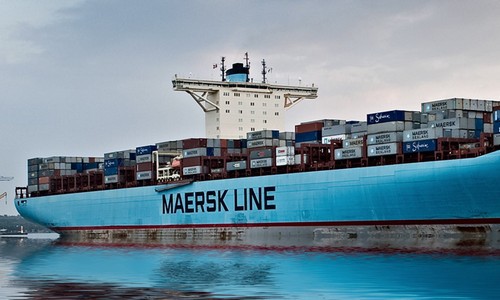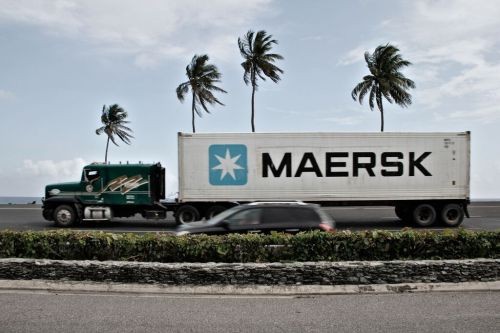A.P. Moller–Maersk Group popularly known as Maersk is a logistics and transport conglomerate headquartered in Copenhagen, Denmark. With the presence in domains such as transport, energy, and logistics Maersk has a network that connects to around 138 countries across the world. Founded in the year 1904 by Maersk Moller, the company has the strongest presence in shipping with a large number of container ships to its credit. The company is also developing end to end solutions for supply chain management that ensures that customer needs from farm to refrigerator are met.
Maersk Line manages the container logistics and upstream oil value chains through eight key segments Maersk Line, APM Terminals, Damco, Svitzer, Maersk Oil, Maersk Drilling, Maersk Supply Service, and Maersk Tankers. Through a wide gamut of operations, the company manages a huge network of global clients in the oil & gas space as well as other core industries. The company registered an annual turnover of 36 billion USD and employs a total of 88,000 employees across 138 countries.
Table of Contents
Strengths in the SWOT analysis of Maersk
The following are the strengths of Maersk :
- Company culture: Maersk is a company that has operations across global borders and thus deals with a vast variety of stakeholders from a number of cultures, ethnicities, and racial groups. The company culture of the company is thus international, dynamic, and centered completely on performance and value orientation.
- Presence in core sectors: The company has the presence in core sectors such as transport, logistics, and energy. Through five core businesses Maersk Line, APM Terminals, Damco, Svitzer and Maersk Containers they handle end to end supply chain needs of all customers. Through their energy business, they are ensuring that their roots are firmly embedded in the world of business.
- Network: The company has operations in around 130 countries across continents such as America, Africa, Asia Pacific, and Europe. The company caters to all kinds of customers irrespective of the size of their businesses. The presence in foreign trade and energy have ensured that their network is spread to even the remote corners of the globe.
- Core values: The business rests on core values like humility, upright attitude, unity, constant care, and the right environment for the right people. The core values of the business are reflected in each aspect of operations and also in the guidelines established by the business.
- Strong customer relationship: The customer relationship of Maersk is very strong and the engagement levels are high between the company and the client. The company develops innovative solutions to satisfy end to end solutions for supply chain management and thus the customer need not approach any other business for their supply chain needs.
- Strategy: The strategy of Maersk looks at value creation for stakeholders at all stages of their business. Though they have the presence in a number of sectors such as energy, transport, and logistics the three operate in synergy. The company focuses on agile strategies which aim at enhancing the growing top line of their clients and identification of unforeseen business opportunities for their clients.
Weaknesses in the SWOT analysis of Maersk
Some of the key weaknesses of Maersk are:
- Low volumes: The competition in the transportation and logistics sector has grown profusely in the last decade and thus the volumes of business have significantly gone down. The unit cost of operation has been increasing consistently and the commercial challenges have been growing.
- Losses in the energy business: Maersk Drilling and Maersk Supply Service the two key brands in the energy operations of the company suffered massive losses in the last two years. In addition to this, there have also been heavy impediment charges as well as the reduction in the total portfolio values.
- High costs of operations: With a growing network the costs of operations of the company poses a critical challenge to the business. The higher rug rates and growing operational delays add to the increased spending of the company.
Opportunities in the SWOT analysis of Maersk
Some of the opportunities include:
- Growth in logistics technologies: In the logistics sector there are a number of new technologies. These technologies not just help the customers to reduce their costs but also help the logistics companies streamline their operations. These technologies include are RFID, logistics outsourcing, and crowd logistics.
Threats in the SWOT analysis of Maersk
Some of the threats include:
- Competition: The main competitors of Maersk are United Parcel Service, Gati China Ocean Shipping Company etc.
- Risks in emerging markets: In comparison to western countries there is more growth in the emerging countries. However, some of the risks associated with these markets are poor road infrastructure, political instability, and inflation.
Liked this post? Check out the complete series on SWOT

